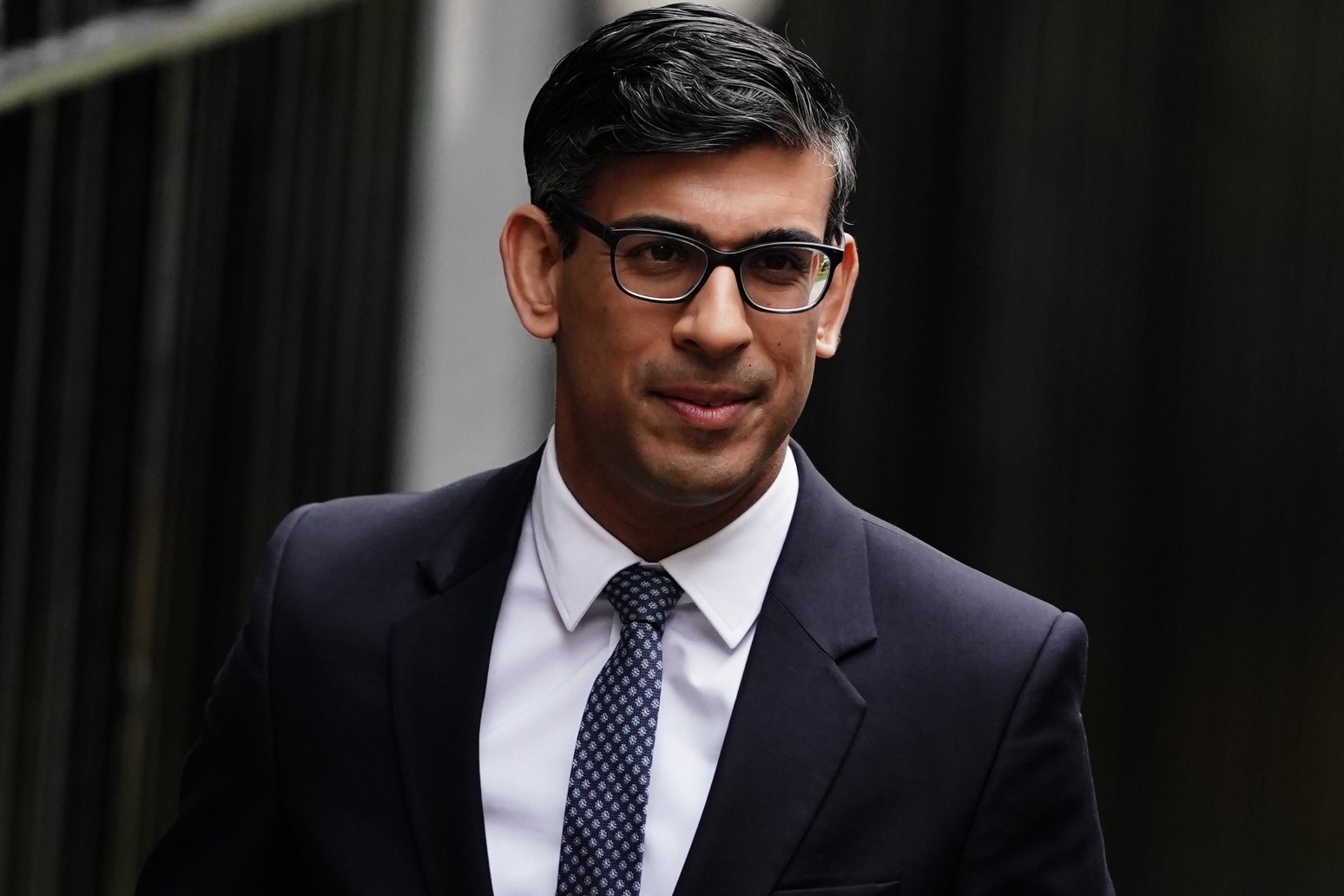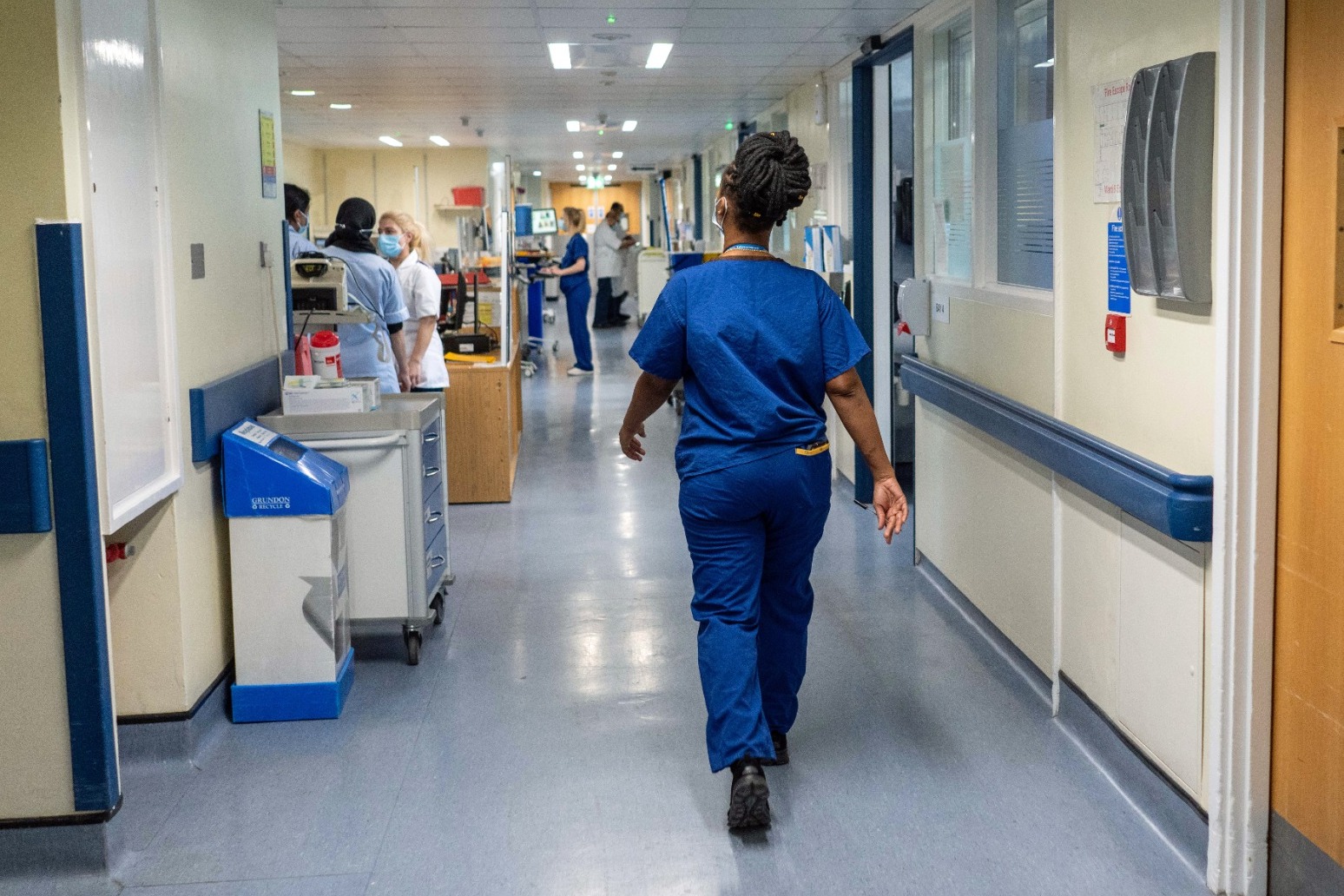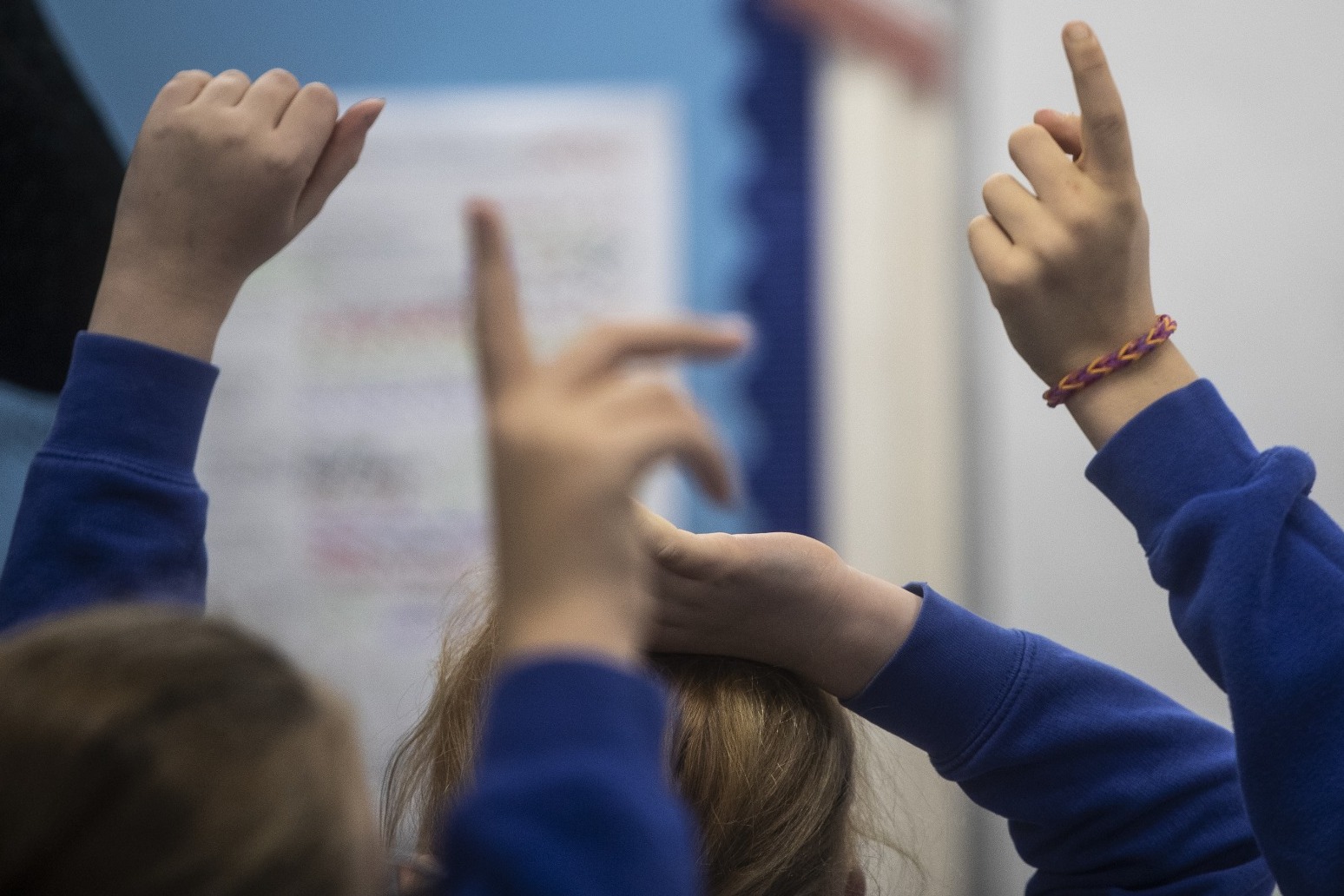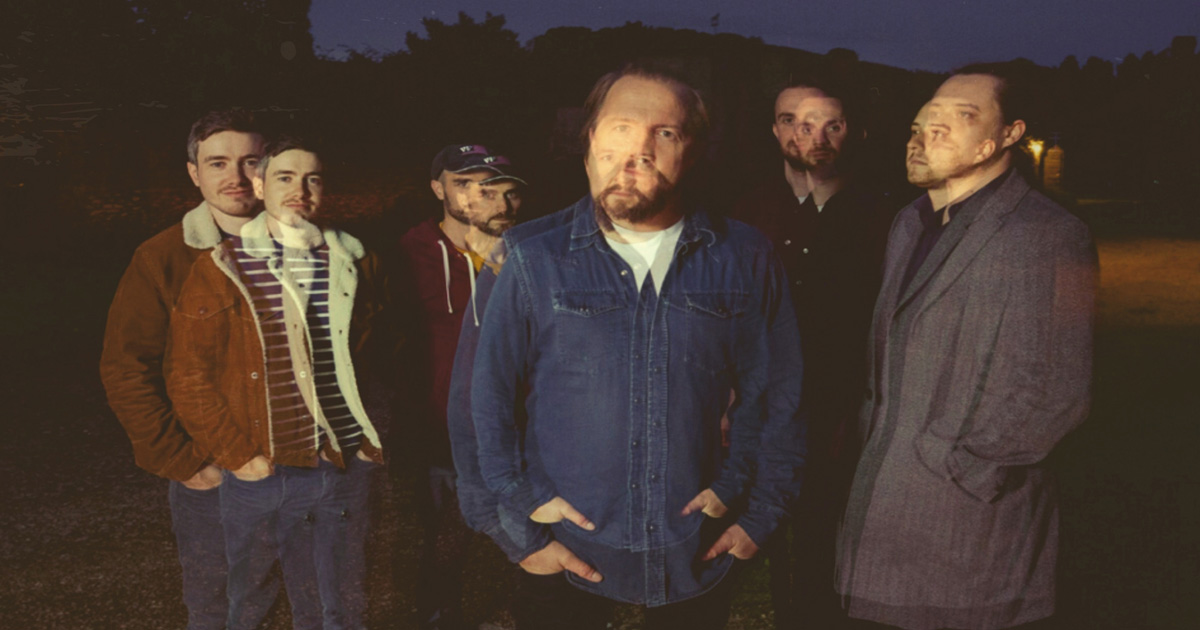
Rishi Sunak has hailed the “incredibly strong support” for his new deal with Brussels on post-Brexit trading arrangements for Northern Ireland after seeing off a backbench revolt by Tory hardliners.
A total of 22 Conservative rebels, including former prime ministers Boris Johnson and Liz Truss, defied a three-line whip to vote against regulations to implement a key plank of the Windsor Framework agreement.
The so-called Stormont brake, designed to give a veto over the imposition of new EU rules in Northern Ireland, was passed comfortably by 515 votes to 29, with Labour and other opposition parties backing it.
Six DUP MPs voted against the statutory instrument along with former Tory Andrew Bridgen, who sits as an independent, while more than 40 Conservative MPs did not vote – although some would have had permission to be away from Westminster.
Mr Sunak was asked during a visit to RAF Valley in Anglesey, North Wales, on Wednesday evening about claims that he had to rely on Labour votes to get his deal through.
He replied: “I think what you’ve said isn’t true.
“There was incredibly strong support for the Windsor Framework, not just from my own party but across Parliament.
“It passed very solidly with Conservative votes and that is because it is a good deal for people, for families, for businesses in Northern Ireland.
“The Windsor Framework restores the balance of the Belfast Good Friday agreement, it secures Northern Ireland’s place in our union, it restores sovereignty, and for all those reasons, I’m pleased that it commanded such strong support, we’re going to implement it now and make sure we can look forward to a bright and better future for Northern Ireland.”
A Government spokesman also hailed the vote, saying it put power back in the hands of Stormont and Westminster, ending the “ratchet effect” of new EU law in Northern Ireland.
“The Windsor Framework is a turning point for the people of Northern Ireland, fixing the problems with the old protocol to ensure the smooth flow of internal UK trade, safeguard Northern Ireland’s place in the Union and address the democratic deficit,” the spokesman said.
Northern Ireland Secretary Chris Heaton-Harris said: “By voting in favour of the Stormont brake, we have voted to ensure that the people of Northern Ireland, through a restored executive, will have full democratic input to the laws that apply to them.”
However, in the Commons, DUP leader Sir Jeffrey Donaldson said it had still not laid the ground for his party to return to powersharing at Stormont.
The executive and Assembly have been suspended since last year when the DUP walked out in protest at the way the protocol was operating.
Sir Jeffrey said the “bottom line” for the party’s return was an assurance that EU law could not impede Northern Ireland’s ability to trade with the rest of the UK.
“Until that is resolved, I can’t commit to the Government that we will restore the political institutions – it’s what I want to do, but we need to get this right,” he said.
“I want Stormont restored on a sustainable basis, on a stable basis where there is cross-community consent and consensus. That does not exist at the moment.”
Among the rebels were former cabinet ministers Sir Iain Duncan Smith, Priti Patel and Jacob Rees-Mogg and ex-party chairman Sir Jake Berry.
The hardline Tory European Research Group (ERG), which opposes the deal, said that a breakdown of the voting figures showed it only got through due to opposition votes.
The group said that if the 22 Tories who voted against the brake were combined with just half the 48 who did not vote, it would have been enough to overturn the Government’s working majority of 66.
However, one committed Brexiteer, former cabinet minister Liam Fox, said the vote in favour of the agreement had been “overwhelming”, bolstering Mr Sunak’s authority and leaving the rebels marginalised.
“The vast majority of Conservative MPs were elected as committed Brexiteers and the vast majority of those have voted for this proposal. It is now not a division, it is now a fragmentation at the edge,” he told BBC Radio 4’s PM programme.
Ahead of the Commons debate, Sir Jeffrey addressed a meeting of the ERG at Westminster attended by about 30 MPs, where the group chairman Mark Francois “strongly recommended” them to vote against.
“Fundamentally this is all about upholding the Belfast Good Friday Agreement which relies fundamentally on the principle of consent,” he said.
“The fact that the DUP have come out very firmly against it means that the deal really has not gone far enough.”
However, there was a strong appeal from the ardent Brexiteer, and former ERG leader, Steve Baker – now a Northern Ireland minister – for Tory MPs to back the agreement
He warned Mr Johnson that his continued opposition risked making him look like a pale imitation of former Ukip leader Nigel Farage.
“So he has a choice: he can be remembered for the great acts of statecraft that he achieved or he can risk looking like a pound shop Nigel Farage. I hope he chooses to be remembered as a statesman,” he said.
Published: by Radio NewsHub














